6 Things You Should Add to Your Morning Routine If You’re Over 50, Experts Say
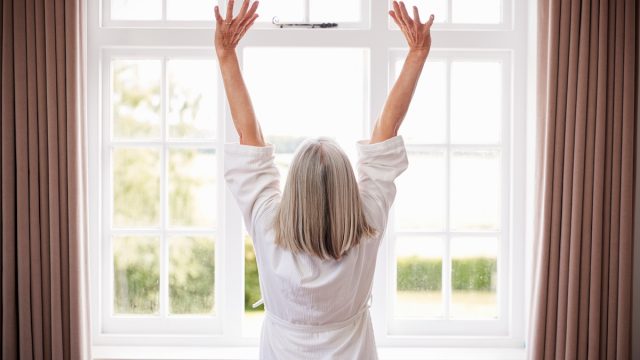
How your morning goes is often a pretty accurate forecast of the day ahead. Chances are if you skimp on sleep or rush out of the house without breakfast, the rest of your day is not going to go very well. But even if you snooze for a solid eight hours and enjoy a nutritious smoothie, there are plenty of other habits that can make or break the start of your day—especially as you get older.
“At 50, it’s more important than ever that I have a consistent, replicable, sustainable, and longevity-based morning routine,” says Greg Scheinman, fitness trainer, entrepreneur, and author of The Midlife Male. To learn what Scheinman and other experts recommend you add to your morning routine if you’re over 50, keep reading.
READ THIS NEXT: Never Do This When You Shower in the Morning, Doctors Warn.
1
Do some early morning meditation.
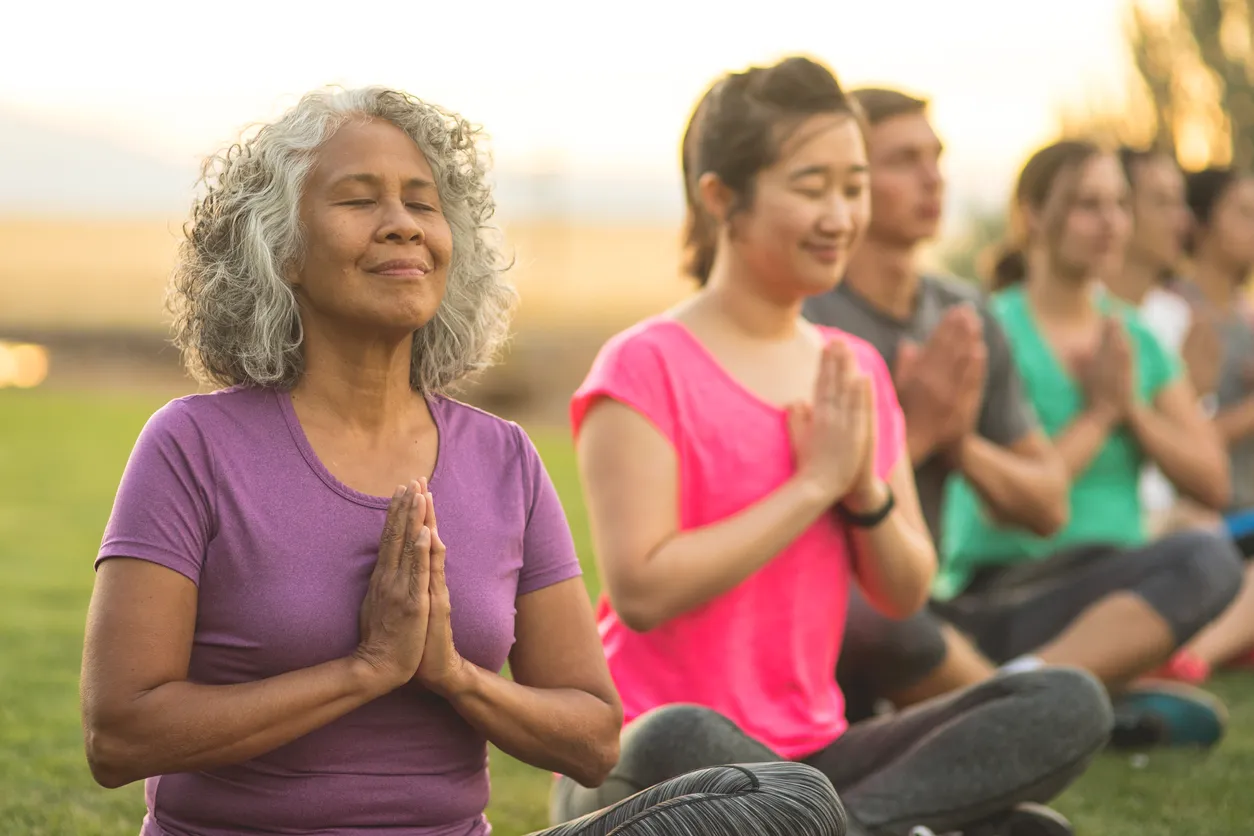
As we get older and hit retirement age, our days may not be as jam-packed as they used to be—no dropping the kids off at school, no commuting to work, no cooking dinner for the whole family. And for a lot of us, this extra time can feel overwhelming. To get ahead of these feelings, experts recommend starting the day with mindfulness.
Studies have shown that meditation can be helpful to both your mental and physical health. It’s calming (in some cases meditation works as well as anxiety medication) and good for your brain health, among many other benefits.
Scheinman uses an app to guide him through breathing exercises, which helps him relax and improve his clarity and focus. “I think meditation is what you make of it, whether that’s ‘true’ meditation or just a few moments of stillness to gather your thoughts and clarity,” he says. “Whatever works best for you.”
2
Hydrate your body.
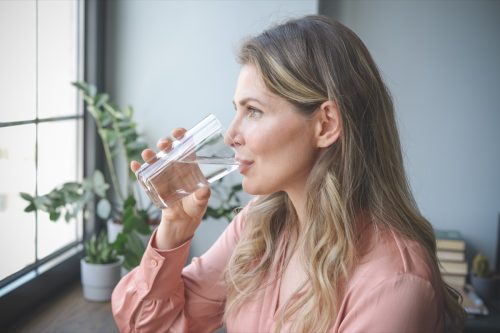
“After 7-8 hours of sleep, I want to rehydrate my body,” Scheinman says, adding that he drinks 20 ounces of water each morning. “It also helps to energize my metabolism and alertness.” And rehydrating in the morning can indeed have myriad benefits, including an energy boost, improved mental acuity, and even better digestion.
This is especially important after the age of 50: The National Council on Aging reports that “older adults experience body composition changes over time that leave them with less water in their bodies to start with.”
READ THIS NEXT: Sandra Bullock Swears by This $7 Drugstore Product for Youthful Skin at 57.
3
Also hydrate your skin.
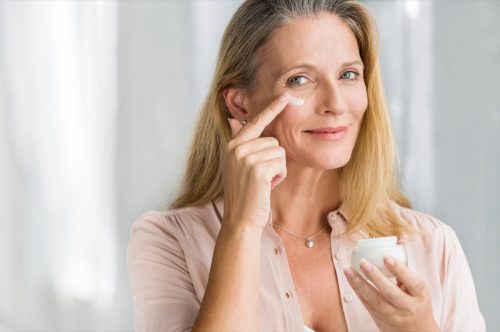
Just as you hydrate your body when you wake up, you should also hydrate your skin. “As we age, skin becomes drier. Fine lines and wrinkles appear,” notes the American Academy of Dermatology (AAD). “Moisturizer traps water in our skin, giving it a more youthful appearance.”
For the best hydrating results, the AAD recommends using a facial moisturizer, a body moisturizer, and a lip balm. Scheinman says his morning routine is washing his face and following up with a hydrating mist, moisturizer, and an under-eye stick.
“[Find] the best facial moisturizer to balance the oil and water content in your skin,” advises Erica Suppa, skincare specialist and the founder and formulator of Fresh Faced Skin Care. “It is important to look for water in the top five ingredients on the product label to tell if it is water-based.” Suppa adds that a water-based moisturizer will “balance the excess oil that your skin is producing.”
4
Apply sunscreen.
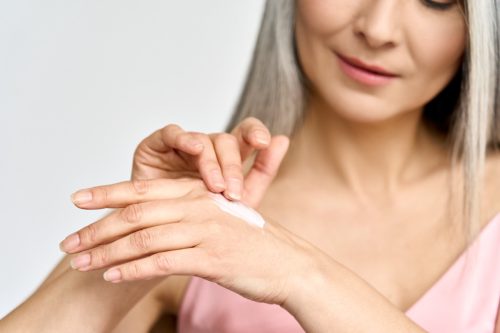
Never underestimate how the sun’s UV rays can age and damage your skin. “Sun protection forms the foundation of every anti-aging skin-care plan,” the AAD says. “We have so much evidence that the sun prematurely ages our skin that there is actually a word to describe this effect. This word is ‘photoaging.'”
Of course, as we get older, it’s even more important to take precautions. “In our advanced years, our skin loses fat and water content and becomes thinner, allowing UV light to penetrate more deeply,” explains the Skin Cancer Foundation. “Compounding the problem, the body’s natural ability to repair damaged DNA diminishes, increasing the likelihood of abnormal cell growth that can cause mutations leading to skin cancer.”
So, even if it’s not a beach day or the middle of July, after you’ve moisturized your skin, be sure to apply sunscreen to your body parts that will be exposed throughout the day. The AAD says you’ll want to find a formula that has broad-spectrum protection, is SPF 30 (or higher), and is water-resistant.
For more lifestyle news sent directly to your inbox, sign up for our daily newsletter.
5
Boost your mood with some sun.
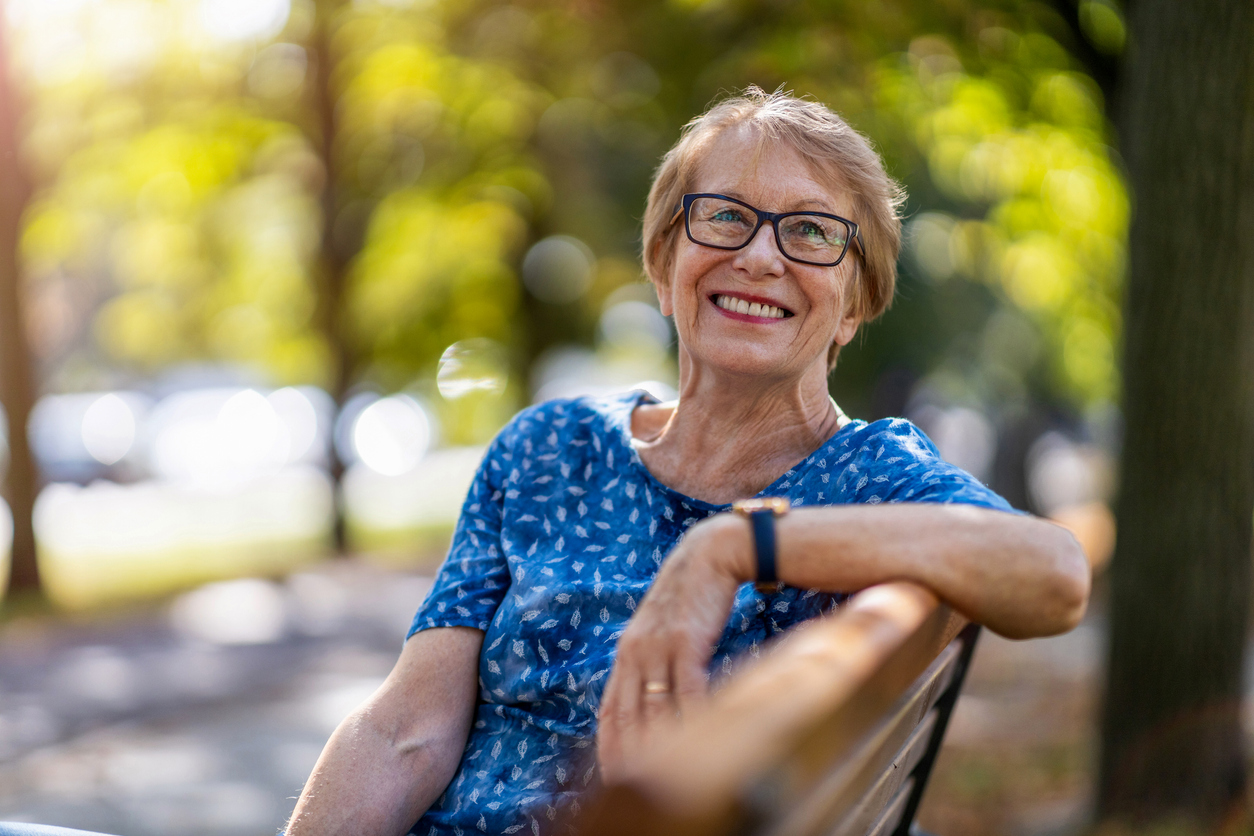
Of course, not all sun is bad. Starting the day off with fresh air and a dose of sunshine is a natural way to boost your mood. “A study of over 500,000 people showed that each additional hour spent outdoors significantly lowered odds of becoming depressed,” reports Psychology Today.
A little sunshine also helps with getting enough sleep. “Stepping outside in the morning sunlight for two to ten minutes has been shown to be effective in regulating sleep patterns,” says Kelly Kessler, a licensed physical therapist, wellness coach, and owner of Optimal You Health and Wellness, and we know that waking up rested is key to starting the day off right.
6
Start the day with physical activity.
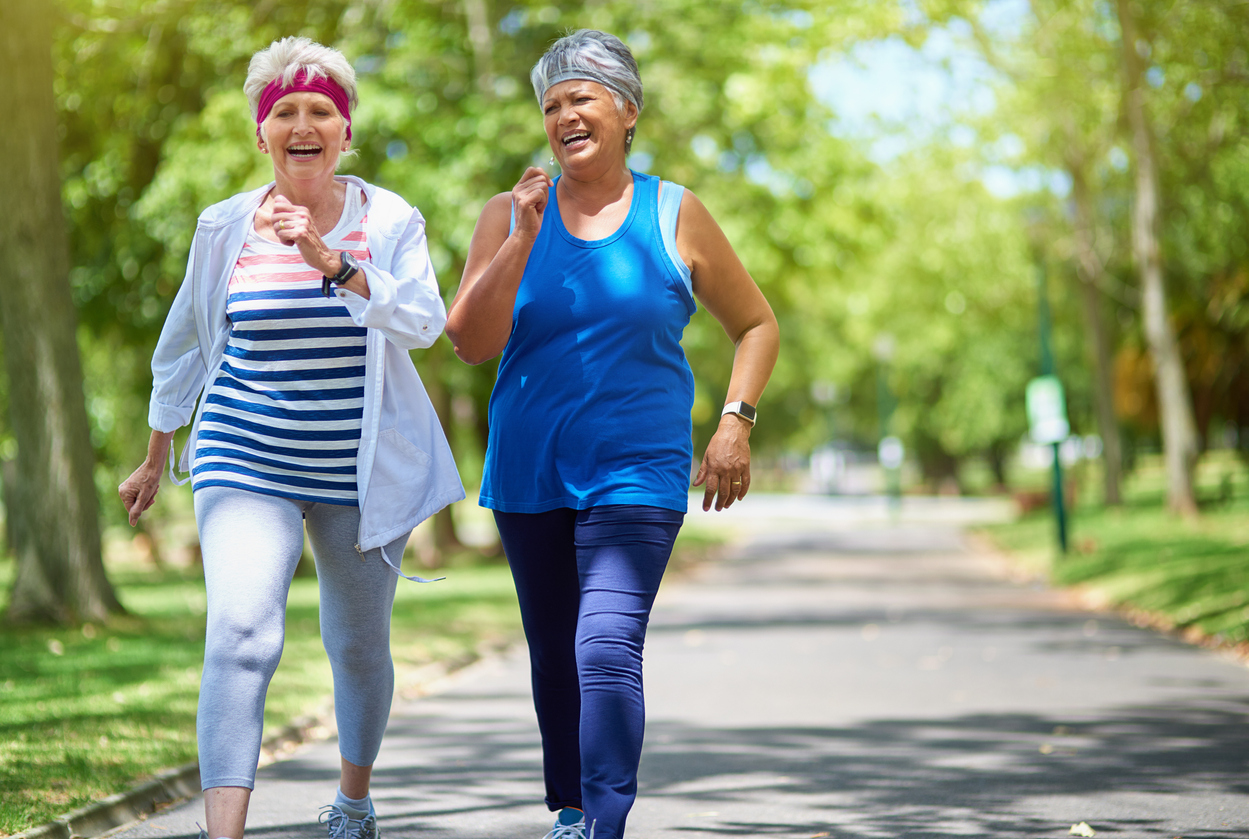
For those of you who dread the idea of early morning gym visits, starting your day with physical activity doesn’t have to mean pumping iron.
According to a recent study, those who walked at a brisk pace (80-100 steps per minute) for 30 minutes a day, had “a 25 percent chance lower risk of heart disease or cancer, a 30 percent lower risk of dementia, and a 35 percent lower risk of all-cause mortality, compared to those who walked at a slower average pace,” as Best Life previously reported.
Don’t have a half hour every morning? As little as ten minutes of exercise per day has been shown to improve or maintain cognitive abilities.
Aside from health reasons, “exercising in the morning has a variety of benefits for our mood and energy levels throughout the day,” explains certified personal trainer Caroline Grainger. “Studies have shown that just 20 minutes of activity, spread out over the course of your morning routine, can help to reduce stress and anxiety levels while improving focus and clarity.” (Grainger does point out that “it is worth investing some extra time into a full body workout or stretching session in order to further reap the rewards of physical activity on one’s mood.”)